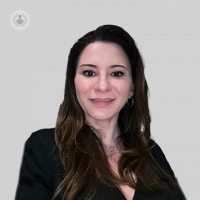Navigating complex care for children with chronic conditions
Written in association with:Navigating complex care for children with chronic conditions is a challenging but essential task for families and healthcare providers alike. Children with chronic conditions such as asthma, diabetes, cystic fibrosis, congenital heart disease, or neurological disorders often require coordinated, ongoing care from multiple specialists and caregivers.

Managing these conditions involves not only addressing the child’s immediate medical needs but also providing emotional support, education, and long-term planning to improve the child’s quality of life.
The cornerstone of effective complex care is developing a comprehensive, multidisciplinary care plan. This plan should be tailored to the child’s unique medical condition and involve a team of healthcare professionals, including paediatricians, specialists, nurses, and therapists.
In addition to medical treatments, it may include therapies like physical therapy, occupational therapy, or speech therapy, depending on the child’s needs. A well-coordinated team helps ensure that the child’s care is seamless and that each aspect of their health is addressed holistically.
Communication between families and healthcare providers is vital in managing chronic conditions. Parents and caregivers need to understand their child’s medical condition, treatment options, and possible outcomes.
Clear, regular communication with the healthcare team helps families stay informed and engaged in the decision-making process, ensuring they can advocate effectively for their child. Education is key here—parents should feel empowered to ask questions, voice concerns, and fully participate in their child’s care.
Children with chronic conditions often face emotional and psychological challenges alongside their physical health issues. Chronic illness can lead to feelings of isolation, anxiety, or depression in both children and their families.
Integrating mental health support into the care plan is essential, whether through counseling, support groups, or other resources. This ensures that the child’s emotional well-being is nurtured alongside their physical health.
Managing a chronic condition also involves navigating the healthcare system and dealing with logistical challenges, such as scheduling frequent appointments, managing medications, and coordinating between multiple specialists. This can be overwhelming for families, particularly when they must juggle these responsibilities with work and other family obligations. Some families benefit from working with case managers or patient advocates who can help them navigate the complexities of healthcare and ensure that all necessary services are provided.
In conclusion, caring for children with chronic conditions requires a well-coordinated, holistic approach that goes beyond medical care. Through collaboration between healthcare providers, families, and support systems, children can receive the comprehensive care they need to thrive despite the challenges of living with a chronic condition.


